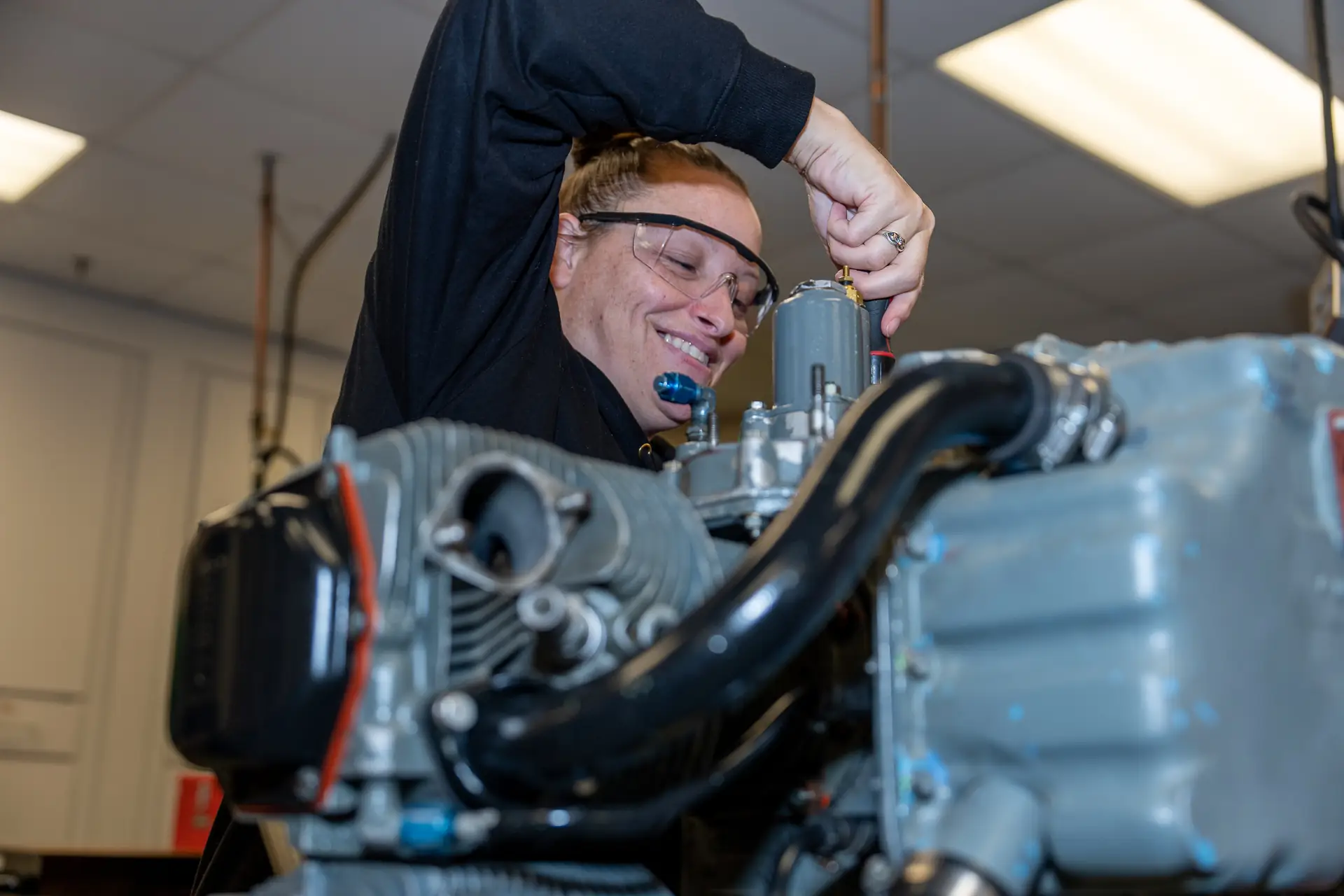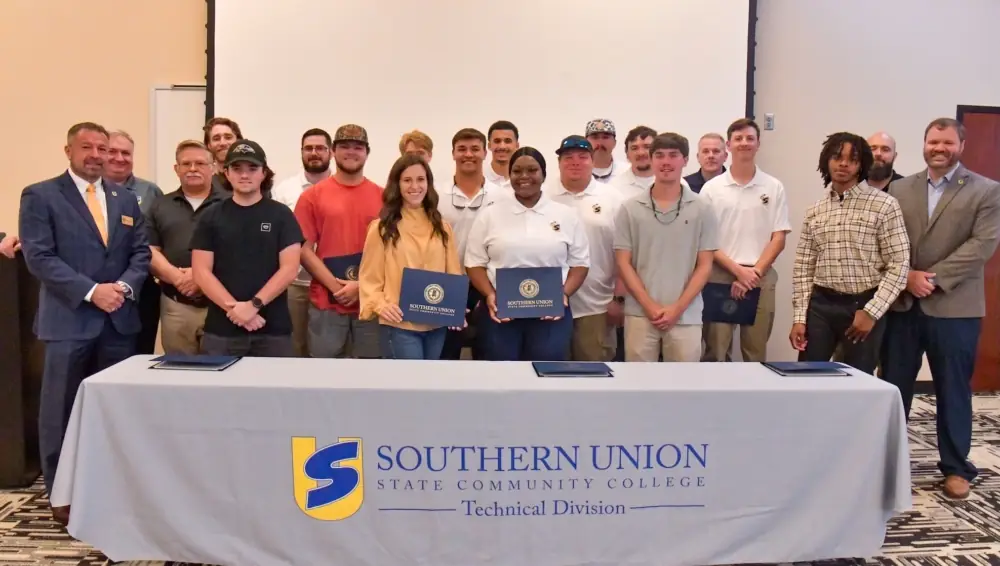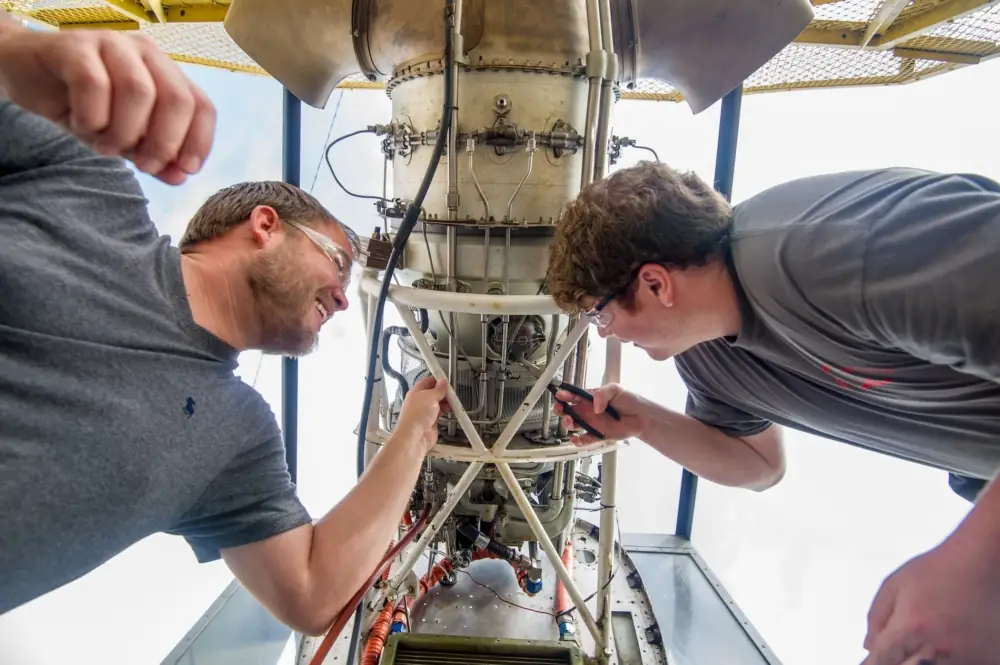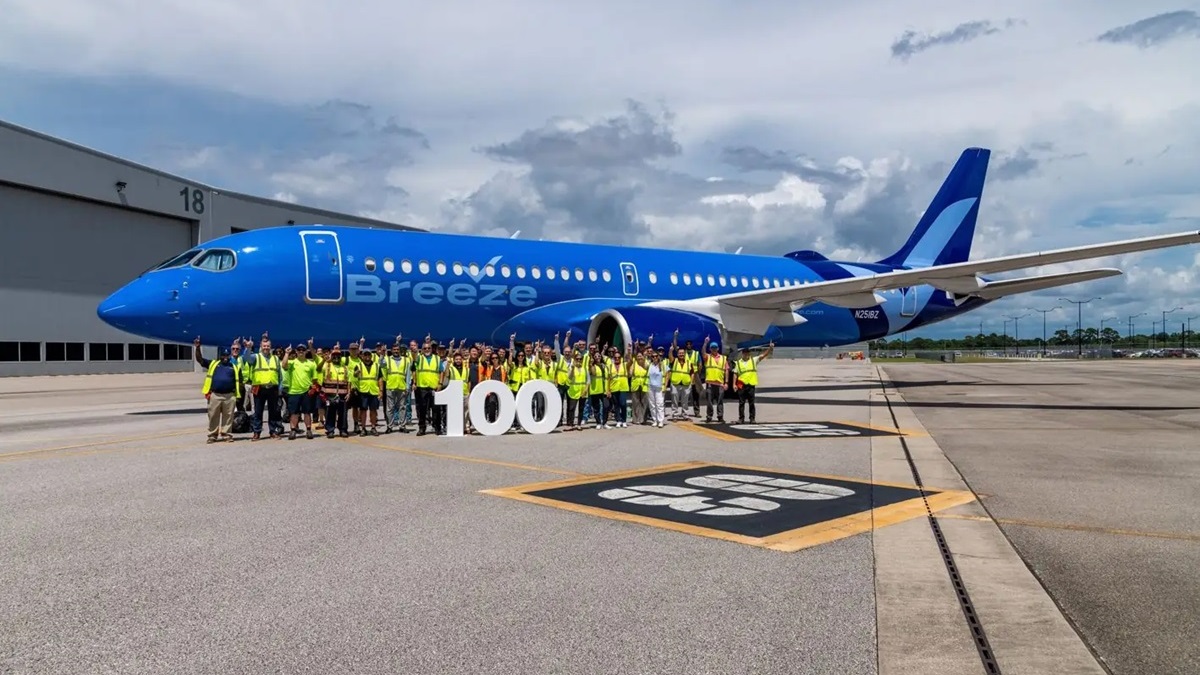
Southern Union State Community College celebrated a significant milestone as the first class of its Aviation Maintenance Technology program graduated, marking another step forward in Alabama’s ongoing effort to strengthen the talent pipeline for the aerospace and aviation industries.
Nineteen Southern Union students recently completed the two-year program, making them eligible to take the Federal Aviation Administration (FAA) exams required to earn a license in the high-demand aviation maintenance field.
“This is an exciting milestone for our students and for the college,” said Dan House, program director for Aviation Maintenance Technology (AMT) at Southern Union. “These graduates have put in two years of hard work mastering the skills needed to keep aircraft safe and airworthy.
“They’re now ready to take the final step toward licensure and enter a high-demand industry,” he added.
The new program illustrates the key role that the Alabama Community College System (ACCS) is playing in providing a new generation of workers for the state’s aerospace and aviation industries.
“This Aviation Maintenance Technology program, and others like it, are prime examples of how Alabama’s two-year colleges are equipping students with real-world skills that meet the needs of key industries,” said Ellen McNair, secretary of the Alabama Department of Commerce.
“This represents an important investment in our state’s workforce and a promising future for aviation in Alabama.”
The ACCS aviation programs are complemented by programs at Alabama universities such as Auburn and Tuskegee, and by training initiatives led by AIDT, the state’s renowned workforce development agency.

Southern Union State Community College celebrated a significant milestone as the first class of its Aviation Maintenance Technology program graduated during a recent ceremony. (Image: Southern Union)
Classrooms to cockpits
Currently, there are roughly 1,500 students enrolled in ACCS’ FAA-certified aviation programs across the state, according to Gillette Samms, director of Aviation Programs for the system.
Nine ACCS schools across the state offer aerospace and aviation-related training programs, with several pathways certified by the FAA. The programs offer students opportunities including high school dual enrollment, certificates, apprenticeships and two-year degrees.
Enrollment has been rising in all of them.
“Each of these programs has unique success stories in contributing to the needs of students engaged in aviation career training, and in meeting local, regional and national workforce needs for which there is currently a huge gap within the industry,” Samms said.
For the industry, the need for trained new talent is acute, with a projected need of more than 200,000 new pilots and 189,000 new maintenance technicians in North America by 2037.
Samms said ACCS offers FAA-certified AMT training programs at Coastal Alabama Community College, Enterprise State Community College, Snead State Community College — and the latest at Southern Union.
He said Southern Union has tripled its aviation mechanic training enrollment since the first students entered the program. Looking forward, the college expects to locate a new training facility at the Auburn airport to accommodate growth occurring at the main and Valley campuses.
Progress is being made to open a fifth AMT program at Calhoun Community College in North Alabama, he added. This program is anticipated to start next fall and will be located on the Tanner campus to support growth activities at Pryor Field, where a new $33 million aviation facility is being built.

The Alabama Community College System is playing a key role in providing a new generation of workers for the state’s aerospace and aviation industries, with around 1,200 students enrolled in various career pathway programs. (Image: ACCS)
Career pathways
For Southern Union’s AMT students, the FAA licensing process included three components — General, Airframe and Powerplant — each with written, oral and practical exams conducted on live aircraft and related components and accessories. In total, graduates must pass nine exams to become licensed aviation maintenance professionals.
The AMT programs combine classroom instruction with hands-on technical training to prepare students for immediate entry into the workforce.
Additionally, ACCS schools offer pathways into the industry besides aviation maintenance.
There’s a Flight Technology program at Wallace State Community College in Hanceville, with flight training in both fixed-wing aircraft and helicopters leading to advanced FAA Commercial Pilot licenses and ratings. Flight training is conducted at the Cullman Regional Airport in Vinemont.
Wallace Community College in Selma offers a comprehensive aviation training program that includes focuses on flight, aviation management, drones, air traffic control and avionics. There is even a Simulation Lab with desktop flight simulators and two full-motion FAA-certified simulators that feel just like flying a real plane.
Samms said another exceptional Aviation Manufacturing program offering is at Bishop State Community College, which supports the growing Airbus manufacturing facility in Mobile.
Other ACCS schools have formed partnerships with key players in Alabama’s aerospace industry, including Boeing and Lockheed Martin. Huntsville’s Drake State Community and Technical College last year opened a 50,000-square-foot training facility in collaboration with aerospace giant Leidos.
“These programs represent exactly the kind of progress Alabama needs to stay ahead in a fast-moving global industry,” said Bob Smith, the Alabama Department of Commerce’s aerospace and aviation specialist. “We’re seeing the results of strategic investment and collaboration — not just in infrastructure, but in people.
“The graduates of these programs are stepping into a high-demand field with real opportunity, and they’re helping ensure Alabama remains a leader in aerospace and aviation for decades to come,” Smith said.
This story originally appeared on the Made in Alabama website.


